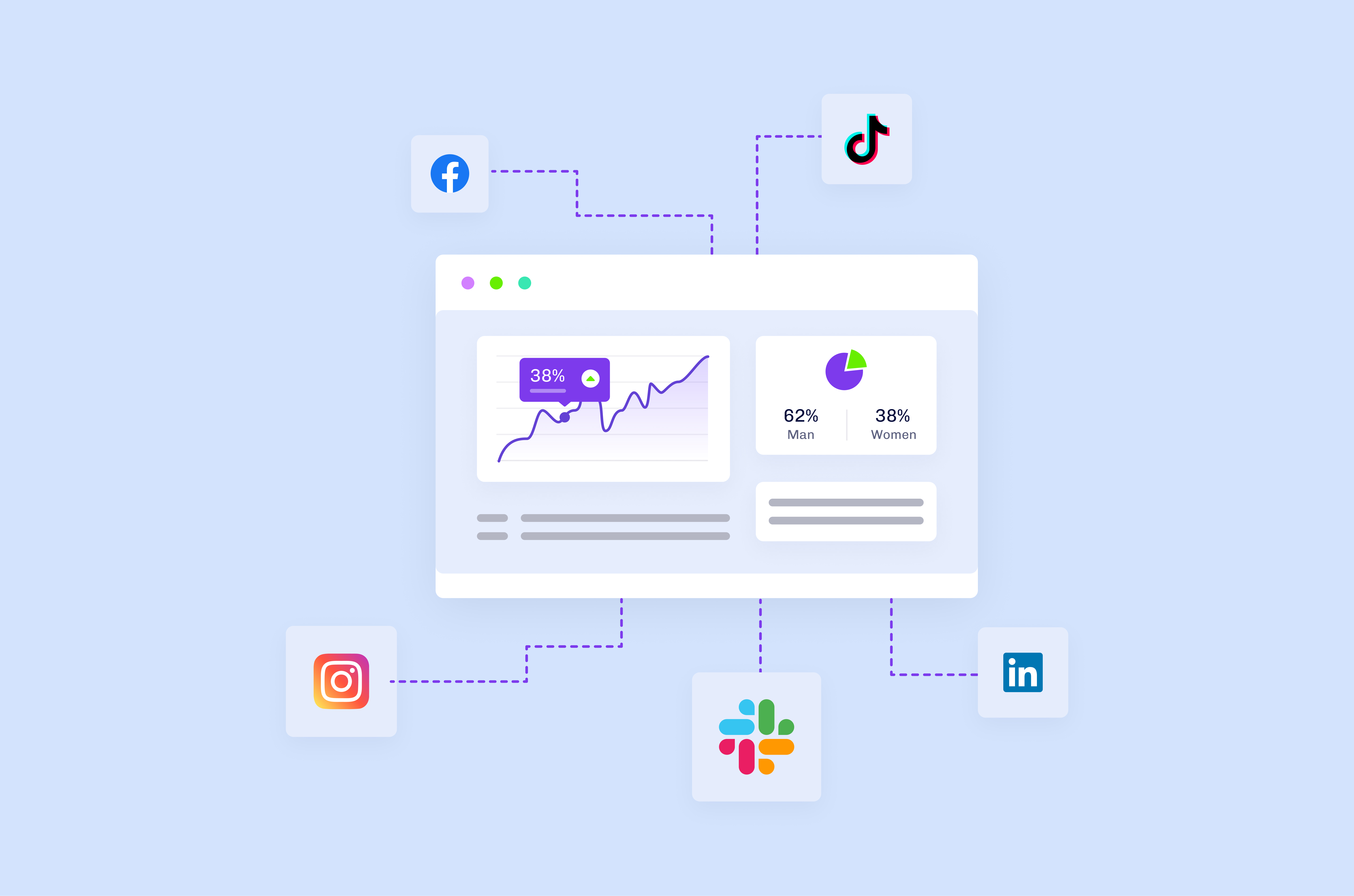How to Optimize Your Website for SEO

In today's digital landscape, optimizing your website for search engines is no longer optional - it's a necessity. Whether you're running a small business or a personal blog, SEO (Search Engine Optimization) is your ticket to increased visibility and higher traffic. Let's dive into some essential strategies and techniques that can help boost your SEO ranking and make your website more search engine-friendly.
Before we delve into specific strategies, let's cover the basics. SEO is all about making sure your website is visible to search engines like Google. The more optimized your site is, the higher it will appear in search results. This means more people can find you when they search for relevant terms.
What is SEO?
SEO, or Search Engine Optimization, involves a variety of techniques aimed at improving a website’s ranking on search engine results pages (SERPs). It encompasses both on-page and off-page strategies and requires an understanding of how search engines operate. By aligning your website with search engine guidelines, you can enhance its visibility and attract more visitors.
How Search Engines Work
Search engines use complex algorithms to determine which pages to display in response to a user's query. They crawl and index pages across the web, assessing factors such as relevance, quality, and user experience. Understanding how these algorithms function can guide you in optimizing your site to meet these criteria, ensuring it ranks higher in search results.
The Evolution of SEO
SEO has evolved significantly over the years, adapting to changes in technology and user behavior. From keyword stuffing to quality content and mobile optimization, the focus has shifted towards delivering genuine value to users. Staying abreast of SEO trends and updates is essential to maintaining and improving your search engine rankings.
Why SEO Matters
SEO is crucial because it:
- Increases Visibility: Higher rankings mean more people see your site. When your website appears on the first page of search results, it receives more clicks and views.
- Enhances Credibility: People trust search engines, so appearing high in results boosts credibility. A top-ranking position signals to users that your site is a reliable and authoritative source.
- Offers Better User Experience: SEO also involves improving your site's usability, ensuring visitors have a seamless and enjoyable experience.
Key SEO Strategies

To optimize your website, you need a comprehensive approach. Here are some key strategies to consider:
Keyword Research
Keywords are the foundation of SEO. These are the terms people type into search engines when looking for information. Conducting keyword research helps you find the right words to target in your content.
- Use Keyword Research Tools: Tools like Google Keyword Planner and SEMrush can help you find keywords related to your niche. These tools provide data on search volume, competition, and trends, helping you choose the most effective keywords.
- Focus on Long-Tail Keywords: These are longer and more specific keyword phrases. They often have less competition and can attract more targeted traffic. Long-tail keywords can also help you reach niche audiences and improve conversion rates.
- Analyze Competitor Keywords: Understanding what keywords your competitors are targeting can provide valuable insights. Use tools like Ahrefs to analyze competitor strategies and identify potential keyword opportunities.
On-Page SEO
On-page SEO involves optimizing the content and HTML source code of your webpage. Here are some tips:
- Title Tags and Meta Descriptions: Ensure each page has a unique title tag and meta description that incorporates your target keywords. These elements serve as the first impression users have of your site in search results.
- Headers and Subheaders: Use H1 tags for your main title and H2 or H3 tags for subheadings. This structure makes content easier to read and enhances accessibility for users with screen readers.
- Keyword Placement: Naturally integrate keywords into your content. Avoid keyword stuffing, which can harm your ranking. Focus on readability and ensure your content flows naturally, engaging your audience effectively.
High-Quality Content
Creating valuable content is key to keeping visitors engaged and improving your SEO ranking.
- Informative and Relevant: Make sure your content answers questions and provides value to your audience. High-quality content establishes authority and encourages visitors to spend more time on your site.
- Regular Updates: Frequently update your site with new content to keep it fresh and relevant. Regular updates signal to search engines that your site is active and current, improving its ranking potential.
- Engage with Visual Content: Incorporate visuals such as images, infographics, and videos to make your content more engaging. Visual content can enhance user experience and improve retention rates.
Technical SEO

Technical SEO involves optimizing the backend of your website. This ensures that search engines can crawl and index your site efficiently.
Mobile-Friendliness
With more users accessing the web via mobile devices, having a mobile-friendly site is crucial.
- Responsive Design: Ensure your website adjusts seamlessly to different screen sizes. A responsive design improves user experience and can reduce bounce rates.
- Test Mobile Usability: Use tools like Google's Mobile-Friendly Test to identify and fix issues. Addressing mobile usability issues can lead to better rankings and increased traffic.
- Optimize for Mobile Search: Consider mobile-specific SEO strategies, such as local SEO for users searching on-the-go.
Site Speed
Page load speed is a ranking factor for search engines. Faster sites offer a better user experience.
- Compress Images: Large images can slow down your site. Use tools like TinyPNG to compress images without losing quality. Optimized images lead to faster load times and improved user satisfaction.
- Minimize HTTP Requests: Reduce the number of elements on a page to speed up load times. This can include combining CSS files and minimizing JavaScript.
- Utilize Browser Caching: Enable caching to store frequently accessed data, reducing load times for returning visitors.
Secure Your Site
Security is another important ranking factor.
- Use HTTPS: Secure your site with an SSL certificate to protect user data and improve SEO. HTTPS is a trust signal for users and can enhance your site's credibility.
- Regular Security Audits: Conduct regular security audits to identify and address vulnerabilities. Protecting your site from threats maintains its integrity and user trust.
- Implement Strong Passwords and Authentication: Use strong passwords and enable two-factor authentication to safeguard your site from unauthorized access.
Off-Page SEO
Off-page SEO refers to actions taken outside of your website to impact your rankings.
Link Building
Building quality backlinks from reputable sites signals to search engines that your site is trustworthy and relevant.
- Guest Blogging: Write articles for other reputable sites in your industry. Include links back to your site. This strategy can enhance your site's authority and expand your audience reach.
- Social Media Engagement: Share your content on social platforms to increase visibility and attract links. Social media can drive traffic to your site and foster community engagement.
- Build Relationships with Influencers: Collaborate with influencers in your niche to gain exposure and build backlinks. Influencer partnerships can amplify your reach and credibility.
Monitor Your SEO Performance
Monitoring your SEO efforts is crucial for understanding what works and what needs improvement.
- Use SEO Tools: Tools like Google Analytics and Google Search Console can provide insights into your site's performance. These tools help track traffic patterns, user behavior, and identify areas for optimization.
- Track Keyword Rankings: Keep an eye on how your keywords are performing and adjust your strategies as needed. Regularly reviewing keyword performance ensures you remain competitive and responsive to changes.
- Analyze Traffic Sources: Understand where your traffic is coming from to make informed marketing decisions. Analyzing traffic sources can help you allocate resources effectively and identify growth opportunities.
Conclusion
SEO is an ongoing process that requires attention and adaptation. By implementing the strategies outlined in this guide, you can improve your website's visibility, attract more visitors, and ultimately achieve your digital goals. Remember, SEO is not a one-time task but a continuous journey towards optimizing your site for better performance in search results. Stay informed about the latest SEO trends and adapt your strategies accordingly to maintain your competitive edge.
By investing time and effort into SEO, you're setting your website up for success in the crowded online marketplace. Keep learning, stay consistent, and watch your website climb the ranks of search engine results. Embrace the dynamic nature of SEO, and your dedication will be rewarded with increased traffic, higher engagement, and greater business success.
.png)



